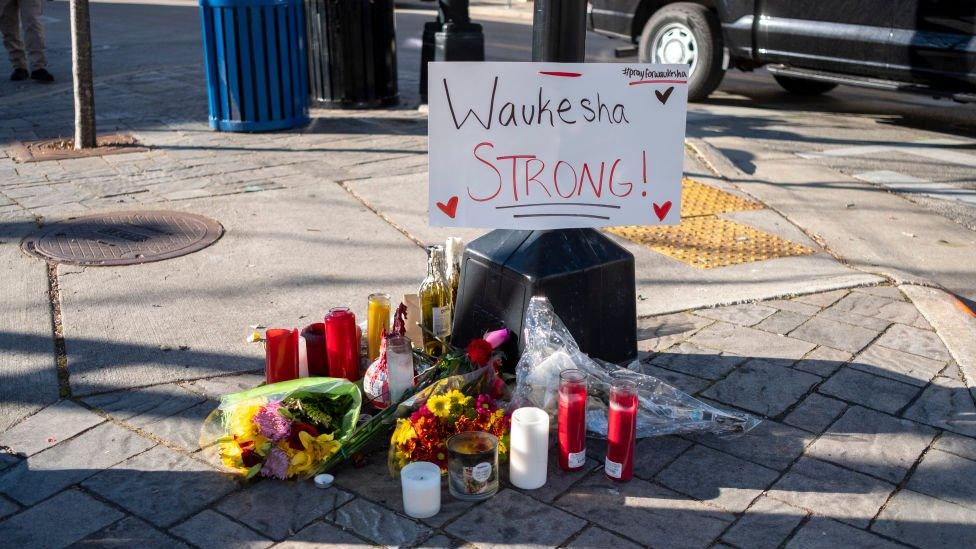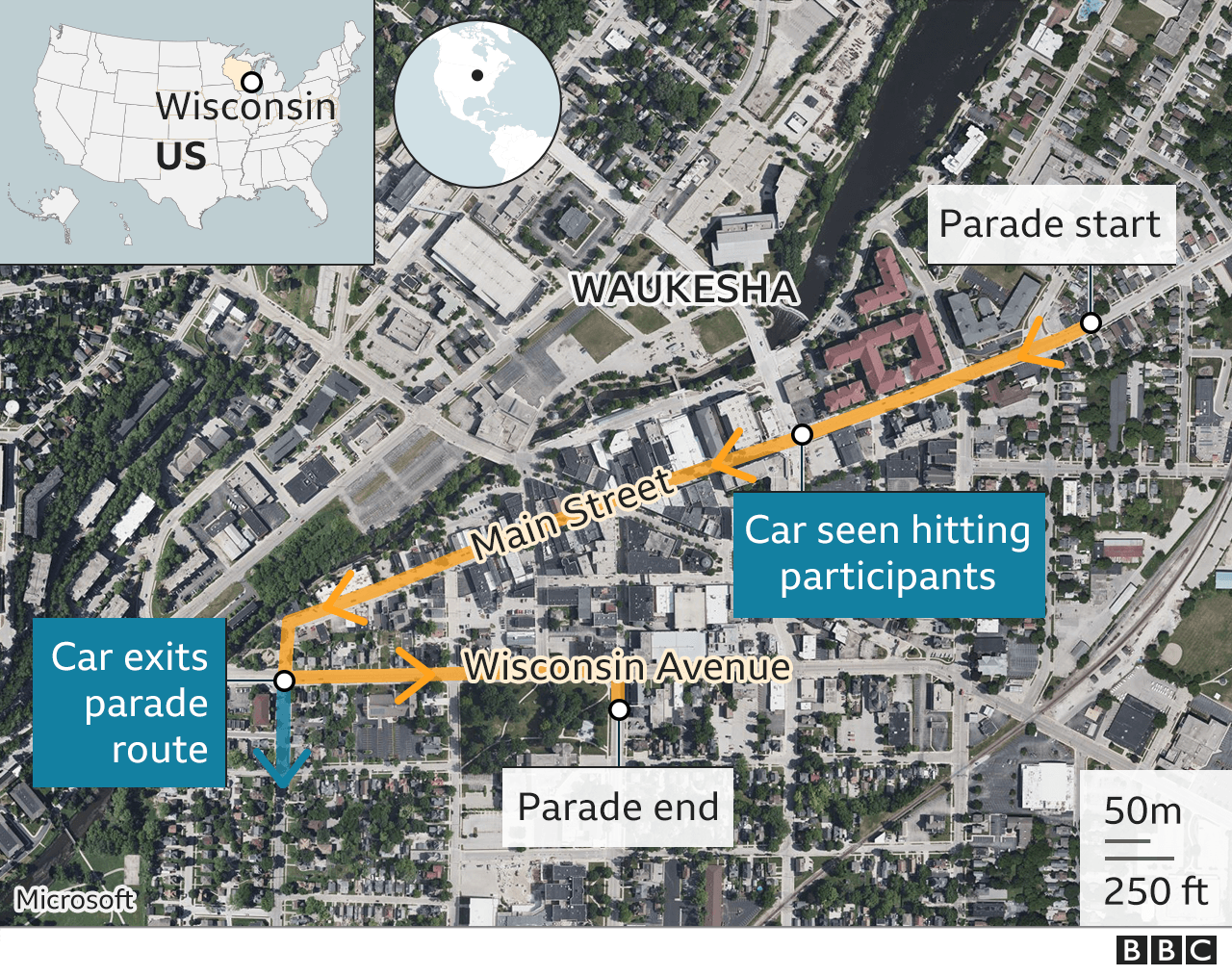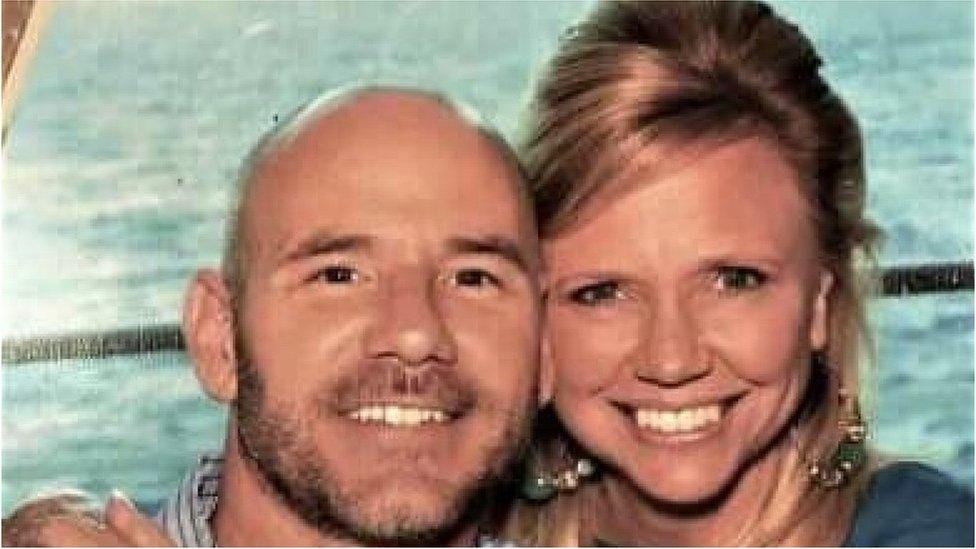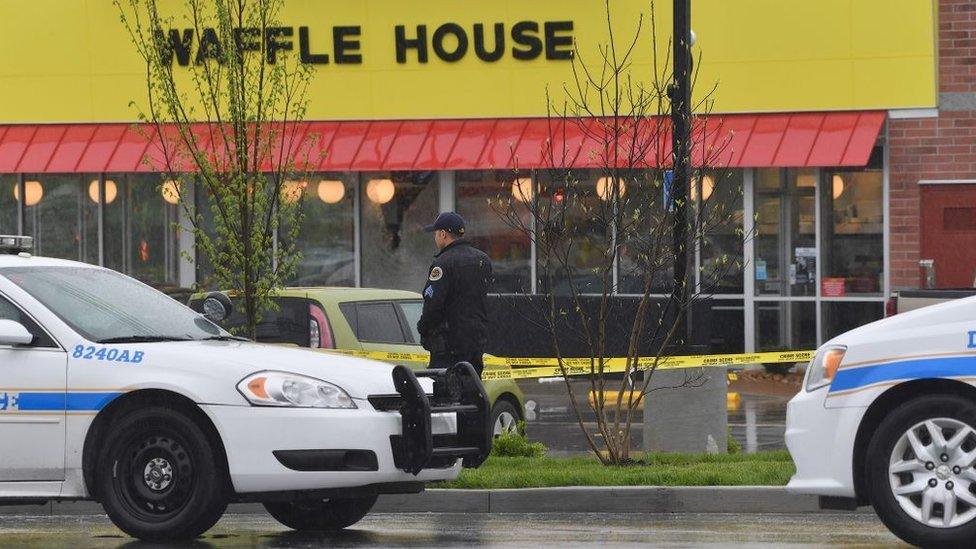Waukesha trial: Man convicted of deadly car-ramming at Wisconsin parade
- Published

The attack took place on Main Street in downtown Waukesha last November
A jury in Wisconsin has convicted a man for killing six people and injuring dozens more when he drove through a Christmas parade last year.
Prosecutors argued he was filled with rage and his actions had shown "utter disregard for human life".
The 40-year-old attacker represented himself in the trial, repeatedly interrupting the judge and derailing court proceedings.
He faces six life sentences plus 859 years of confinement, prosecutors say.
School bands and a dance troupe of Wisconsin grandmothers were among those marching in the city of Waukesha on 21 November when the attacker sped down the road in his red SUV.
Those killed were Virginia Sorensen, 79; LeAnna Owen, 71; Tamara Durand, 52; Jane Kulich, 52; Wilhelm Hospel, 81; and eight-year-old Jackson Sparks. More than 60 others were injured.
The driver, Darrell Brooks, a native of nearby Milwaukee, was said to have been fleeing a domestic incident with his ex-girlfriend.
He was convicted of 76 charges, including homicide, hit and run, bail jumping and battery.
As the 12-person jury's verdict was read on Wednesday, he sat motionless with his head in his hands.
Someone in the gallery shouted as the verdicts were read: "Burn in hell!"
"Your actions are that of a murderer," lead prosecutor Sue Opper said during closing arguments on Tuesday. "When you ride through a parade route and roll over children... your intent is known."
Ms Opper told the court that the attacker "never stopped", despite the police officers and barricades in his way, before later attempting to "change his appearance" and "get the hell out of town as fast as he could before the cops came".
"This was an intentional act... and an act of utter disregard for human life," she said.
Initially pleading not guilty on grounds of mental illness, the attacker later withdrew the plea without explanation.
Days before the trial, he also dismissed his public defenders and chose to represent himself. He declared himself a so-called "sovereign citizen", adherents of a fringe movement who believe they are not under the jurisdiction of the government and are exempt from US law.
In court, the defendant claimed not to recognise his own name, objected to prosecutors' questions and repeatedly heckled Judge Jennifer Dorow, forcing her on more than one occasion to move him to an adjacent courtroom to follow the proceedings via a muted Zoom call, where he at one point appeared shirtless.
"This case has demonstrated that a stubbornly defiant defendant can forfeit even important constitutional rights by conduct," the judge said on Tuesday.
Weeping through his closing statement, the suspect claimed he was "speaking from the heart" and had not intentionally mowed down parade-goers.
"My conscience is clear," he told jurors. "Whatever you decide, make sure you can live with it."


Related topics
- Published24 November 2021

- Published22 November 2021

- Published5 August 2020
